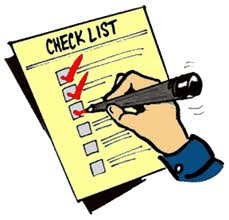You’ve worked hard all quarter getting your essay in top form. You’ve outlined. You’ve taken pages of notes. You’ve peer-workshopped. Your instructor has given you feedback – and at least 100 handouts. You revised. And revised. And revised. Today the final draft is due – but is it really done?
Don’t be too quick to hand your essay over just yet. Here are a few last-minute editing tips to get your essay as perfect as it can be.
1. Did you use spell-checker? Good. But don’t trust it. Spell-checker is great if you have misspelled a word or used incorrect punctuation (sometimes). But spell-checker doesn’t work if you’ve used defiantly instead of definitely, or their instead of there, or a semi-colon instead of a colon, or – you get the picture. One quick way to find these errors is to go to the toolbar under “Edit”; click “Find,” then type in the words you have difficulty with. It will highlight them so you can confirm you’ve used these words correctly.
2. Read the first and last sentence of each paragraph. Does each paragraph focus on just one topic, or are you all over the place? See where you were beginning with the paragraph, and see where you ended up; if you went down one road and ended up on a multi-lane interstate, refocus your thoughts so the paragraph communicates one topic or point.
3. How is your sentence variety? Do you vary the length and style to create a nice rhythm, or are sentences short and choppy? Can short sentences be combined? Do you say the same thing but in five different ways? Sometimes we spend so much time on research or MLA as we’re composing our essays that we overlook something as simple as sentence variety that can be the difference between blah and the best essay evah!
4. Read your essay aloud to really hear the words. Reading your essay aloud is the most important thing you can do to find those difficult errors that spell-check or your peer group doesn’t catch. Read slow and deliberately. If you’ve read your essay so many times it’s too familiar, try reading your essay backward. This will slow you down and give you a different perspective on the sentences.
5. Do you feel like you know your essay by heart? Time to take a step back. If time allows, put the essay away for a day or two. Getting some distance from your essay will give you the opportunity to read it with a fresh set of eyes.
6. Finally, let it go. You’ve done the best you can and there comes a time when we have to let our writing go and move on. If you know you’ve done your best to make your writing all it can be, then a grade often becomes secondary to that sense of accomplishment you’ll feel when it’s complete.
What are your due-day rituals? Do you have any last-minute tips you’d like to share?

